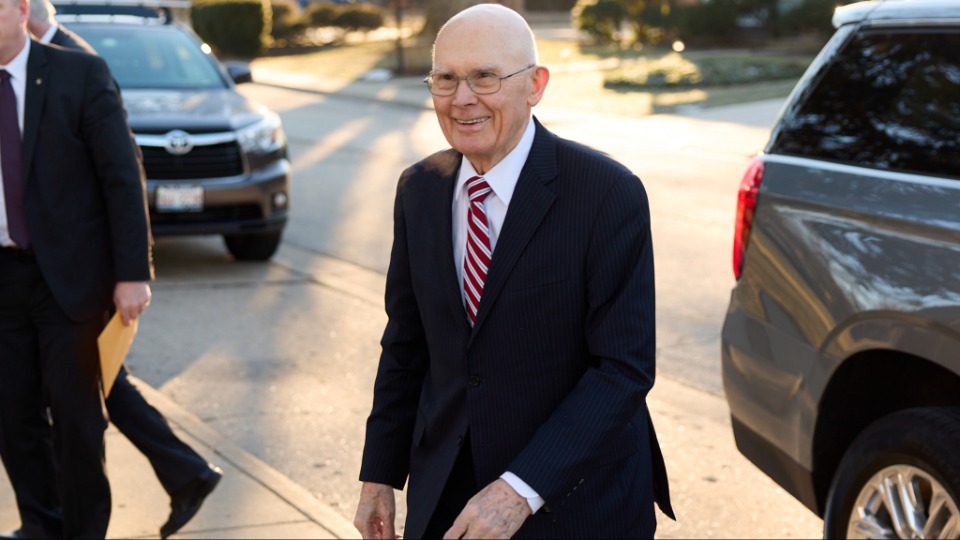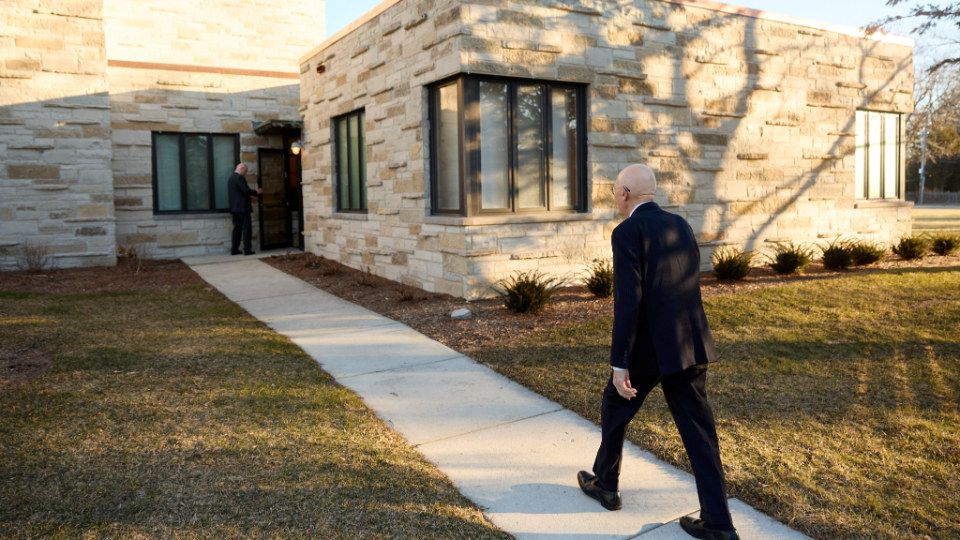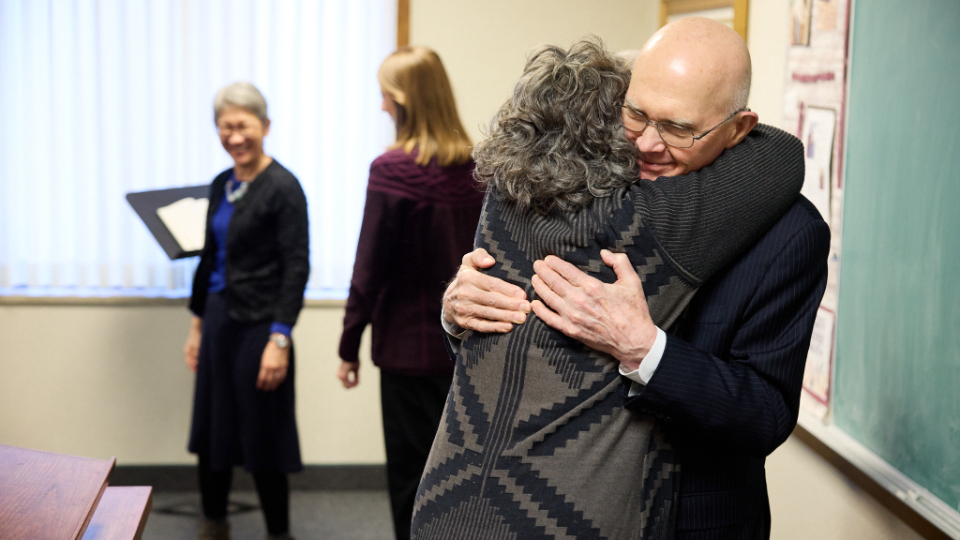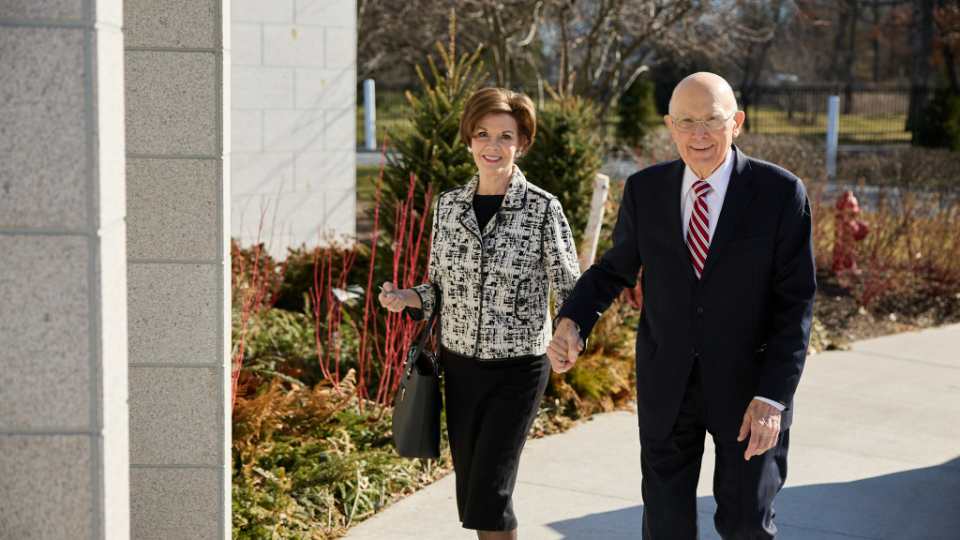Chicago, Illinois | Saturday, 11 February 2023 |
The Church of Jesus Christ of Latter-day Saints took the position it did on the United States Respect for Marriage Act (signed into law in December 2022) because of the law’s “necessary protections for religious freedom.”

So said President Dallin H. Oaks of the First Presidency at a Saturday morning meeting (February 11, 2023) with local Church leaders and their spouses in Chicago, Illinois.
The Respect for Marriage Act includes “valuable provisions to assure that no federal or state laws [can] be used to harm the religious or conscience rights of faith-based institutions or their members,” President Oaks said. “In the end, the total law ensures that religious organizations, religious schools, and their staff do not have to perform or host same-sex marriages or celebrations. It protects the tax-exempt status of religious organizations. It protects the grants, licenses, contracts and accreditation of religious schools. And it specifically provides that its own provisions cannot be used to violate anyone’s rights to religious freedom. Putting such protections in the federal law was a big step forward.”

President Oaks, a former Utah state supreme court justice who previously practiced law for over three years in Chicago and taught for 10 years as a professor of law at the University of Chicago, said such religious freedom protections in federal law are “a big step forward.”
“We will be alert to proposed future state action and legislation as we continue our defense of religious freedom,” he said.
The Church has spoken in defense of religious freedom for many years. The faith has supported religious freedom and nondiscrimination bills at the state level in Arizona (2022) and Utah (2015) and at the federal level (2019). As a Church statement said in support of the federal legislation, “the nation is more united when diverse individuals and groups can work cooperatively to advance sound policy.”

President Oaks is perhaps best known outside the Church for his many speeches in defense of religious liberty. In an address 14 months ago at the University of Virginia, he called for “a new, workable balance between religious freedom and nondiscrimination.” He pointed people to a “better way” that focuses on the Christ-centered virtues of loving, listening, respecting, negotiating, persuading, balancing, tolerating, cooperating, reconciling, accommodating — any peaceful means that focus on the common good and “resolve differences without compromising core values.”
“Some of our members have expressed concerns that the new national Respect for Marriage law is in conflict with the Church’s teachings against same-sex marriage. We see a need to clarify the Church’s position on that new law.“
“At the time the national Respect for Marriage Act was adopted, the Church publicly reaffirmed our Church doctrine approving only marriage between one man and one woman.“
“Marriage bills previously proposed in the Congress made no attempt to protect religious freedom. The Church came out in favor of amendments that added religious freedom protections to the proposed Respect for Marriage Act. The amended bill was signed into law, but its overall effect was misunderstood because many news stories focused on only the part of the act that affirmed same-sex marriage.“
“The Respect for Marriage Act did restate same-sex marriage as the law of the land, but that added little because that law was already in effect under the U.S. Supreme Court’s Obergefell decision. The focus of the Church’s efforts was not on same-sex marriage, but on ensuring the act contained the necessary protections for religious freedom.“
“As signed into law, the Respect for Marriage Act included valuable provisions to assure that no federal or state laws could be used to harm the religious or conscience rights of faith-based institutions or their members. In the end, the total law ensures that religious organizations, religious schools, and their staff do not have to perform or host same-sex marriages or celebrations. It protects the tax-exempt status of religious organizations. It protects the grants, licenses, contracts and accreditation of religious schools. And it specifically provides that its own provisions cannot be used to violate anyone’s rights to religious freedom. Putting such protections in the federal law was a big step forward. We will be alert to proposed future state action and legislation as we continue our defense of religious freedom.“

Devotional in the Greater Chicago Area
President Oaks addressed members and friends of the Church in Illinois, Indiana and Wisconsin Saturday evening, February 11, as part of his weekend ministry assignment. He spoke from the Wilmette, Illinois stake center with the meeting broadcast covering 14 stakes. Read a report on this meeting from Church News below.
‘Live together with mutual respect for one another’s differences,’ says President Oaks
